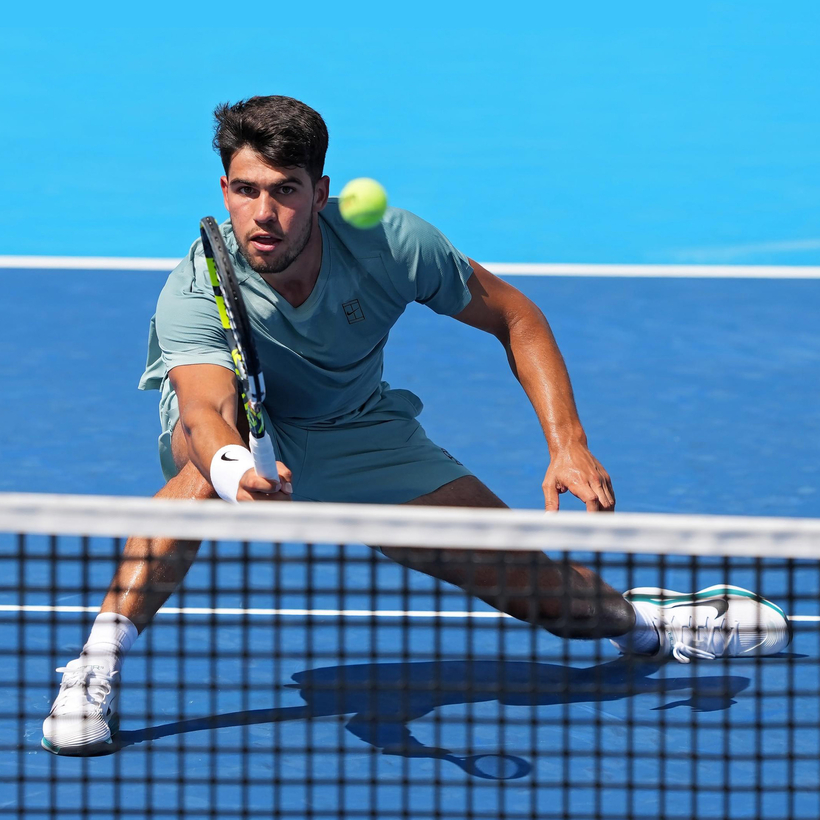Antonio López doesn’t play so much these days—he spends more time coaching than competing now—but when he does enter tennis tournaments in Murcia, in southern Spain, people will half recognize him: “Are you the guy who once beat Carlitos 6–0, 6–0?” La bici, they call the “double bagel” in Spain, as the two zeros in the scoreline look a bit like the wheels of a bike.
The most one-sided defeat of Carlos Alcaraz’s life—a loss the tennis champion is now able to laugh about—was in a junior tournament in Totana, a town in Murcia about a 40-minute drive from his village of El Palmar. López was 12 at the time, two years older than Alcaraz, which is a significant age advantage in junior tennis. That advantage was even greater because, as López recalls, Alcaraz was short for his age.

